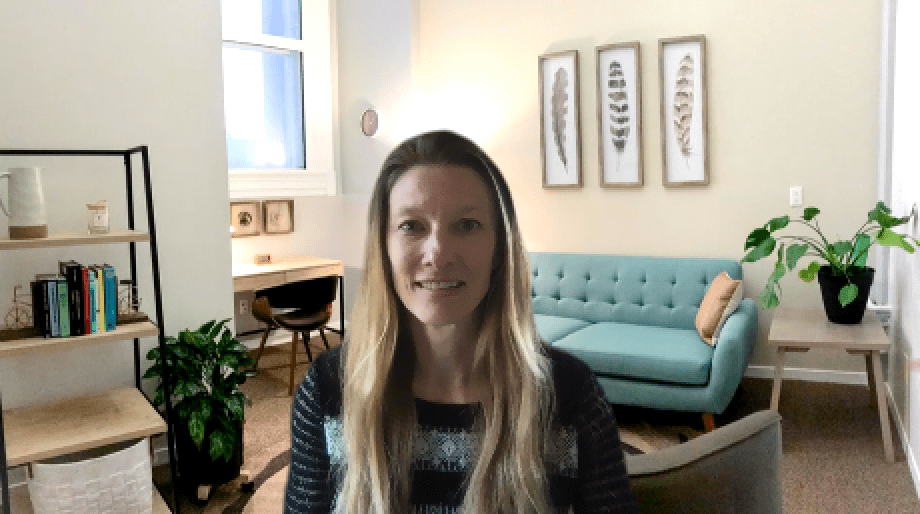
Why do we offer online therapy, also known as telehealth?
Many adults and older teens are happy to discover that we offer online therapy, also known as telehealth. Online therapy is an effective, secure way to connect for the support you are interested in – at convenient times and from an online location that works for you! If you know you’re interested in online therapy, call or email our Client Relations Team now at 626.585.8075 ext. 108 or Intake@IFGD.care. We’ll schedule your free Welcome Call and match you with one of our caring and skillful therapists. We look forward to working with you and supporting you on your journey!
If you are curious to learn more about online therapy, read the FAQ and tips below.
What is online therapy?
It’s the use of electronic transmission to provide interactive real-time mental health services remotely. We use a HIPAA-compliant version of Zoom for our sessions.
What kinds of services can be provided to me via telehealth?
We can offer all the same therapeutic services online that we offer in person! Our seasoned and skillful therapists value working with clients online – for psychotherapy, consultation, groups, and (if/when needed) diagnosis – just like with in-person therapy.
What are the benefits of online therapy?
Research shows that online can be a very effective and convenient alternative to in-person therapy.
Online therapy:
- can flexibly provide the opportunity to work with skillful therapists with desired approaches who may be outside your geographic area
- can offer continuity of care for individuals who may spend part of the year in the San Gabriel Valley and part of the year in other parts of California. Think college students! Think business travel!
- allows for communication (verbal and visual), similar to in-person therapy
I or my teen or young adult would love to get online support now. How do we get started?
We are accepting new clients now and look forward to connecting with you! We have experienced clinicians available to offer services for clients in all stages of life – children, middle schoolers, teens, young adults, and adults. We offer therapy for individuals, groups, couples, and families.
Please contact our Client Relations Coordinator to discuss your questions and goals at intake@IFGD.care or 626-585-8075 ext. 108.
Are there any downsides?
There are some age groups (young children) and some support needs that may be better served by in-person therapy. However, we also recognize that in-person therapy may not always be an option or accessible. Talk to our Client Relations team and your matched therapist to discuss questions or concerns.
In terms of preference: While many people value the comfort and ease of online therapy, some people say that telehealth services do not have the same level of comfort and may not seem as complete when talking about personal and private matters. We encourage clients to discuss these experiences with their therapist. There are adjustments therapists can make with the client to increase the comfort level for the client. The client and therapist can discuss and experiment with these. In terms of security: While no electronic transmission system is considered completely safe from intrusion, we use software with encryption via a HIPAA compliant platform to maximize your confidentiality.
Are there ages that are more appropriate for online therapy?
Younger children may prefer in-person therapy, but we’ve found teens through adults are generally comfortable with online meetings and appreciate the convenience of online therapy. Young adults, for example, often have a particular preference for online services

How do I join a session?
It’s a quick, easy process. As mentioned, we use a HIPAA-compliant version of Zoom for our services. Clients can connect with their therapists using smartphones, laptops or desktop computers. Once our Client Relations team or your therapist schedules your session, you’ll receive an invitation to download the Zoom app and to RSVP to your session
Do I need to clean up a bedroom for my daughter’s therapy session?

No! Set up your device in any private space in your home. Only the area right behind the client will be visible unless they choose to show the therapist more of their space.
If you’d prefer, you can blur your Zoom background or even select a virtual background, which replaces the space behind the client with the image of a comfortable “therapy space.”
What about confidentiality?
Find a private space in your home, and you’re ready to go. The client and therapist agree to keep the same privacy safeguards as during an in-person session. The environment should be free from intrusions or disruptions. We use HIPAA-compliant telehealth software with encryption to maximize your confidentiality.
The client is responsible for participating in the session in an enclosed private room, with reasonable sound barriers, and with no one else present or observing. The client and therapist agree not to record the telehealth sessions without prior written consent.
How do we get started?
Please contact our Client Services team to learn more or to express interest in a particular group at intake@IFGD.care or 626-585-8075 ext. 108.
TIPS FROM OUR THERAPISTS

Give it a try! Telehealth may be a new experience for you or your child, and new experiences may be accompanied with some reservations. However, most families have found once they give it a try, online therapy is a wonderful experience. Also, it can be a great way to practice flexibility and the importance of stepping outside your comfort zone.
It can be helpful to connect with your child’s therapist to brainstorm helpful toys or materials to have on hand. If a child is used to coloring or playing with Playdoh during in-person sessions, having similar materials available can ease the transition to online therapy.
Postdoctoral Fellow, Supervised by Vicki Chiang, Psy.D. – Licensed Psychologist (PSY 21136)

Set up your child in advance so she’s comfortable and has a stable screen in a private area. The larger screen size of a laptop or desktop computer is ideal to keep kids and teens engaged.
Licensed Psychologist – PSY 21136

Although initially it might feel a little “weird” to meet online instead of in-person, it allows us to practice our flexibility and creativity in both the therapeutic relationship and in the therapeutic “space”!
Also, I invite my clients to share fun ideas about how they’re navigating social distancing, and we develop new rituals and games that bolster the work we’ve already been doing in our in-person sessions. I think normalizing that it’s new and emphasizing that we can “keep it going” therapeutically is really helpful.
Paige Howard, M.S., Intake Coordinator
Associate Marriage and Family Therapist – AMFT 115379, Associate Professional Clinical Counselor – APCC 6798, Supervised by Monica Valdivia Aguilar, M.A. – Licensed Marriage and Family Therapist (LMFT41352)
